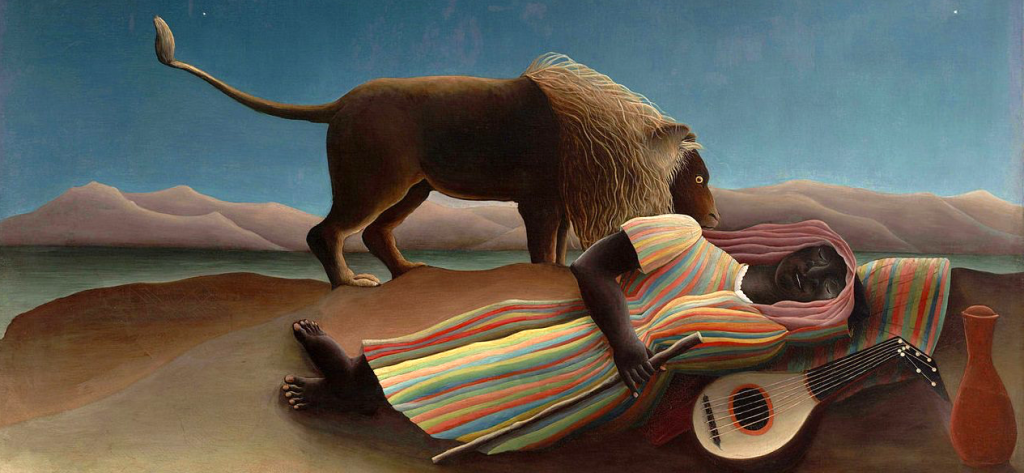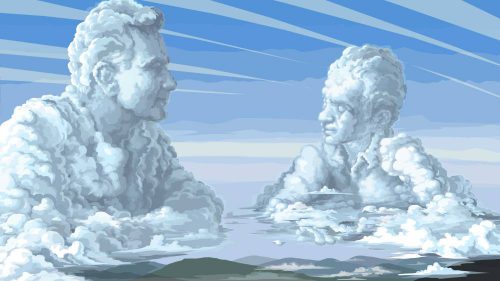

“But What If We’re Wrong?” is the fascinating question that Chuck Klosterman asks in his new book (of the same name). He spends roughly 250 pages attempting to “think about the present as if it were the past”, meaning, he’s looking to uncover what we’ll look back on in 30, 50, 100 years and be shocked/embarrassed by the casual certitude with which we accepted it as truth. That is, what will our future generations thumb their noses at about our present day, the way we thumb our noses about, say, pesticides? What that we think is second-rate will be remembered and what that we currently think is important will be forgotten? It’s the kind of intellectual entertainment that Klosterman excels at, like an uncommonly cogent (and funny) 2AM conversation with your most interesting friend when you’re three beers deep. Candy for the mind, I guess.
One of my favorite sections (besides those where Neil Degrasse-Tyson gets audibly–and revealingly–irritated with Chuck’s badgering) comes in the chapter on “The World That Isn’t There”, where Klosterman broaches the subject of dreams. Dreams, he observes, have never been viewed as less important than they are today. We view them as a nuisance almost, to be taken with a grain of salt, certainly nothing worth, well, losing sleep over:
For most of human history, the act of dreaming was considered deeply important, almost like a spiritual interaction with a higher power. Three thousand years ago (assuming Fomenko was wrong), Tibetan monks would teach themselves to lucid dream in order to pursue enlightenment through a process called Dream Yoga. Around 1619, philosopher Rene Descartes forwarded his take on the so-called Dream Argument, the quintessential distillation of the “Maybe this isn’t really happening” dorm room conversation. The zenith of dream seriousness occurred at the turn of the twentieth century, defined by the work of Sigmund Freud (who thought dreams were everything) and his adversarial protege Carl Jung (who thought dreams were more than everything–they were glimpses into a collective unconscious, shared by everyone who’s ever lived).
But soon after World War I, this mode of thinking slowly started to crumble. The ability to map the brain’s electrical activity in 1924–and from that point forward, dreams increasingly mattered less. The last wide-scale attempt at cataloging a database of human dreams dissipated in the sixties. In 1976, two Harvard psychiatrists proposed the possibility that dreams were just the by-product of the brain stem firing chaotically during sleep. Since then, the conventional scientific sentiment has become that–while we don’t totally understand why dreaming happens–the dreams themselves are meaningless. They’re images and sounds we unconsciously collect, almost at random. The psychedelic weirdness of dreaming can be explained by the brain’s topography: The part of your mind that controls emotions (the limbic system) is highly active during dreams, while the part that controls logic (the prefrontal cortex) stays dormant. This is why a dream can feel intense and terrifying, even if what you’re seeing within that dream wouldn’t sound scary if described to someone else. This, it seems, has become the standard way to compartmentalize a collective, fantastical phenomenon: Dreaming is just something semi-interesting that happens when our mind is at rest–and when it happens in someone else’s mind (and that person insists on describing it to us at breakfast), it isn’t interesting at all.
Which seems like a potentially massive misjudgment…
Every night, we’re all having multiple metaphysical experiences, wholly constructed by our subconscious. Almost one-third of our lives happens inside surreal mental projections we create without trying. A handful of highly specific dreams, such as slowly losing one’s teeth, are experienced unilaterally by unrelated people in unconnected cultures. But these events are so personal and inscrutable that we’ve stopped trying to figure out what they mean.
“We have come to the conclusion that dreams are something that can be explained away scientifically,” [film director] Richard Linklater tells me over the phone… “Dreams used to have a much larger role in the popular culture–people would discuss dreams in normal conversation and it was common for people to keep dream diaries. So why did that drop off, but things like astrology somehow stayed popular? I mean, one is an actual thing that happens to everyone, and the other is a system put in place that obviously can’t be real. This idea that we’re all connected to other realities is somehow no longer worth considering at all, even though multiverse theory and string theory is increasingly prominent, and more and more scientists are reluctantly conceding that certain things about the universe lead to that very possibility. So two things are happening simultaneously: We’re moving into this period where our view of the universe is kind of a ‘What the fuck? How could that be?’ scenario, where there’s this possibility of endless alternative realities across space, totally based on conjecture–yet our dreams are supposed to mean nothing? The fact that we’re in a parallel world every night is supposed to be meaningless? I mean, the same scientists that are trying to explain away our dreams are also telling us things about the universe that are so mind-boggling that we almost can’t describe them.”
I might add that the demotion/degradation of dreaming applies just as much to the Judeo-Christian world as the “secular” one, which strikes me as especially curious considering the stature ascribed to dreaming in the Bible. My pet theory is that, in the Christian world at least, we dismiss dreams wholesale because we would rather not confront what they suggest about our spiritual and emotional lives, i.e. they are a place where our true anthropology can’t help but shine through.
Moreover, it could be that dreams reveal to us something of the nature of reality itself that we would rather ignore, namely, that we don’t actually know what’s going on. Life is far more unknowable and uncertain, its twists and turns far more unpredictable than we care to admit. However tightly we may clutch our brain maps and scramble for the control they promise, dreams still happen to us. All the knowledge in the world cannot give us power over experience.
You might say that if hope is to be found amidst the chaos, it cannot be separated from revelation, nocturnal or otherwise.

COMMENTS
8 responses to “A Potentially Massive Misjudgment (about Dreaming)”
Leave a Reply















The penultimate sentence might have HUGE ramifications in the coming election.
How are we ever to interpret these dreams unless God allows us to understand them, as with Daniel? Dreams are frustrating to me because they tend to be nonsensical outside of them, but inside…they make perfect sense. I get it and I live it. Their trajectory is rude, too. Out of the blue, they demand space in a place which follows no before or after, unlike waking space where we follow a clock, though events happen incidentally we are still able to identify the event’s place in history through the use of time.
Abundant stories of people east of the USA receiving faith in Jesus through dreams astonish me, yet I believe them. I just don’t know what to do with my own dreams. Usually I ignore them. A few remain in my memory.
*as with Joseph, not Daniel
as with Joseph, Daniel and others…
Yes, you are right, aren’t you Tim – many people in scripture were given dreams and visions. Probably many more than can be named. Thank you for that reminder. Something to think about…thanks!
Why were Joseph’s convoluted? Upon first read I would not guess what those dreams were about, except that they are explained through the text. What do we do with those dreams that do not make sense unless they are explained/interpreted? How about Ezekiel’s vision?! As DZ proclaims at times on MBird, Egad (which makes me laugh)! How do I understand what the message is without help?
As a side note, yesterday my co-worker (who is of sound mind) shared this same vision with me, stating that he, his mother, and brother were witnesses of this same event when he was 12 yrs. old (now late 30’s), but in waking reality – a physical object. His understanding is of them being similar to aliens (having spaceships), but they are instead angels of God watching us and ready for war with Satan.